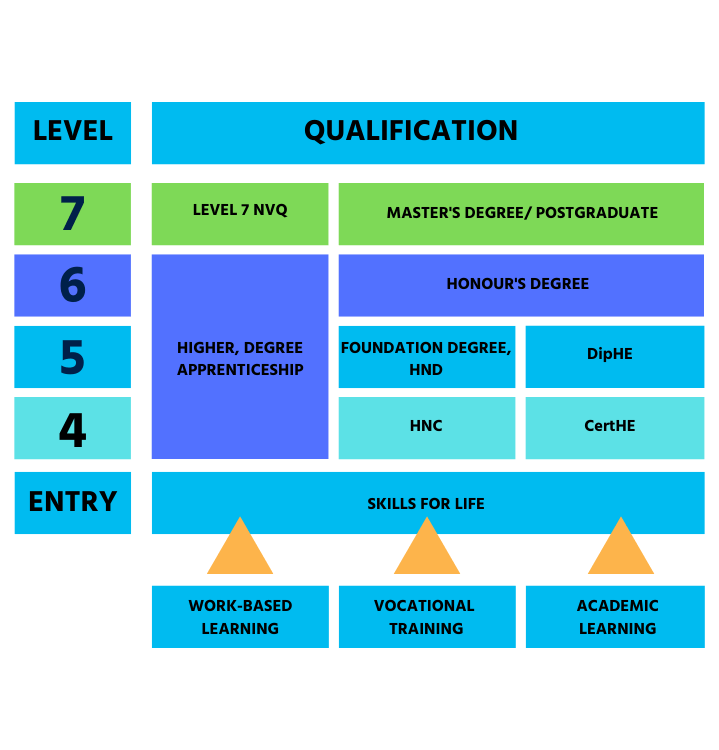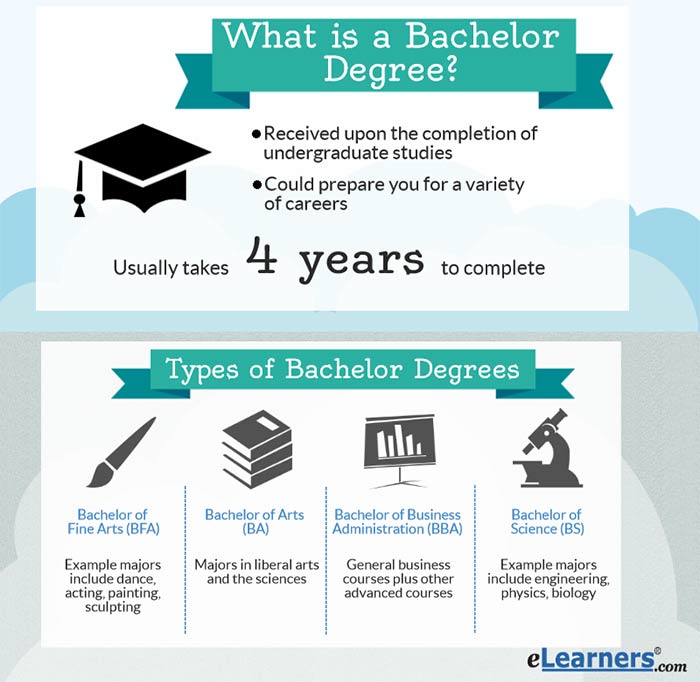An undergraduate is a student pursuing their first degree, typically a bachelor’s. This level of education follows high school.
Undergraduate programs offer foundational knowledge and skills in a chosen field. These programs usually take three to four years to complete. Students can choose from various majors such as engineering, business, arts, and sciences. Undergraduate studies are crucial for building a career or pursuing higher education.
These programs often include lectures, exams, and practical experiences. Many universities also offer opportunities for internships and research projects. Graduating with an undergraduate degree can open doors to numerous job opportunities. It’s a significant step in one’s academic and professional journey.
Introduction To Undergraduate Studies
Undergraduate studies are the first step in higher education. They lay the foundation for your future career. These programs provide essential knowledge and skills.
Definition
An undergraduate program is a course of study at a college or university. It leads to a bachelor’s degree. This is typically the first level of tertiary education.
Undergraduate programs usually take three to four years to complete. They cover a broad range of subjects. These programs are designed to give students a well-rounded education.
Purpose
The purpose of undergraduate studies is to prepare students for professional careers. They also prepare students for advanced studies. These programs help in developing critical thinking and analytical skills.
Undergraduate programs offer a balanced mix of theory and practical knowledge. This helps students to understand and apply what they learn. Students also get opportunities to engage in research and internships.
Many universities offer a variety of undergraduate programs. These include arts, science, engineering, and more. Students can choose a program that aligns with their interests and career goals.
| Key Features | Details |
|---|---|
| Duration | 3-4 years |
| Outcome | Bachelor’s Degree |
| Focus | Theory and Practical Knowledge |
| Opportunities | Research, Internships |
Choosing the right undergraduate program is crucial. It can shape your future career and life.

Credit: www.dictionary.com
Types Of Undergraduate Degrees
Undergraduate degrees are the first level of university education. They provide foundational knowledge and skills. There are two main types of undergraduate degrees: Associate Degrees and Bachelor’s Degrees.
Associate Degrees
Associate Degrees are usually two-year programs. They offer basic academic and technical knowledge. These degrees are often awarded by community colleges. An Associate Degree can lead to entry-level jobs.
There are different types of Associate Degrees:
- Associate of Arts (AA): Focus on arts and humanities.
- Associate of Science (AS): Emphasis on science and math.
- Associate of Applied Science (AAS): Prepares students for specific careers.
Bachelor’s Degrees
Bachelor’s Degrees are four-year programs. They provide in-depth knowledge in a chosen field. These degrees are offered by universities and colleges. A Bachelor’s Degree opens up more career opportunities.
Common types of Bachelor’s Degrees include:
- Bachelor of Arts (BA): Focus on liberal arts subjects.
- Bachelor of Science (BS): Emphasis on science and technical subjects.
- Bachelor of Fine Arts (BFA): Focus on visual and performing arts.
Below is a comparison table of Associate and Bachelor’s Degrees:
| Aspect | Associate Degree | Bachelor’s Degree |
|---|---|---|
| Duration | 2 years | 4 years |
| Institution | Community College | University/College |
| Career Level | Entry-Level | Mid to High-Level |
Admission Requirements
Understanding the admission requirements for an undergraduate program is crucial. These requirements help determine eligibility for enrollment. Each institution may have specific criteria, but common elements exist across most universities.
High School Diploma
A high school diploma is a basic requirement. It shows you have completed secondary education. Some universities may accept a GED as an alternative.
High school transcripts are often requested. They provide a record of your academic performance. Good grades can improve your chances of admission.
Here is a summary of what you need:
- High school diploma or GED
- Official high school transcripts
- Good academic standing
Entrance Exams
Many universities require entrance exams. These tests assess your readiness for college-level work. Common exams include the SAT and ACT.
Scores from these exams play a significant role in admissions. Higher scores may increase your chances of acceptance.
Here are the typical entrance exams:
- SAT
- ACT
Some programs may also require subject-specific tests. These could include SAT Subject Tests or AP exams.
| Requirement | Details |
|---|---|
| High School Diploma | Completion of secondary education |
| Entrance Exams | SAT, ACT, or other subject-specific tests |
| Transcripts | Official records of academic performance |
Course Structure
The course structure of an undergraduate program is designed to provide a balanced education. It typically includes two main components: General Education and Major-Specific Courses. Each part has its unique role in a student’s academic journey.
General Education
General education courses cover a wide range of subjects. These courses ensure students have a well-rounded knowledge base. They include subjects like:
- Math
- Science
- History
- English
- Social Sciences
These classes help students develop critical thinking and communication skills. They are usually required in the first two years of study.
Major-specific Courses
Major-specific courses focus on the student’s chosen field of study. These classes provide in-depth knowledge and specialized skills. Examples include:
| Major | Course Examples |
|---|---|
| Computer Science | Programming, Algorithms, Data Structures |
| Business | Marketing, Accounting, Management |
| Biology | Genetics, Ecology, Microbiology |
Students usually take these courses in their junior and senior years. This part of the curriculum helps students gain expertise in their chosen field.
Academic Expectations
Entering an undergraduate program means adjusting to new academic expectations. These expectations are crucial for your success. Let’s dive into the specifics:
Grading System
The grading system in undergraduate programs can vary. Most universities use a letter grade system. This system ranges from A to F.
- A – Excellent
- B – Good
- C – Satisfactory
- D – Poor
- F – Fail
Some universities also use a numerical scale. For example:
| Letter Grade | Percentage | Grade Point |
|---|---|---|
| A | 90-100% | 4.0 |
| B | 80-89% | 3.0 |
| C | 70-79% | 2.0 |
| D | 60-69% | 1.0 |
| F | 0-59% | 0.0 |
Workload
The workload in undergraduate studies can be challenging. You may have several assignments every week. Also, expect to spend many hours studying.
Here are some typical components of an undergraduate workload:
- Lectures
- Readings
- Assignments
- Group Projects
- Exams
Managing your time is crucial. Creating a study schedule can help. Balance your academic and personal life for success.

Credit: www.ukstudyonline.com
Extracurricular Opportunities
Extracurricular activities are a key part of an undergraduate experience. They help students develop skills outside the classroom. These activities can range from clubs to internships. Let’s explore some popular options.
Clubs And Organizations
Joining clubs and organizations is a great way to meet new people. Many universities offer a wide range of clubs. Students can join academic, cultural, and sports clubs.
Here are some popular types of clubs:
- Academic Clubs: Focus on specific subjects like math, science, or literature.
- Cultural Clubs: Celebrate different cultures and promote diversity.
- Sports Clubs: Include activities like soccer, basketball, and swimming.
- Hobby Clubs: Focus on interests like photography, cooking, or gaming.
Clubs offer a chance to develop leadership skills and build friendships. They also provide opportunities for community service and networking.
Internships
Internships are another valuable extracurricular opportunity. They provide real-world experience in a student’s field of study. Internships can be paid or unpaid.
Benefits of internships include:
| Benefit | Description |
|---|---|
| Work Experience | Gain practical skills and knowledge. |
| Networking | Meet professionals in your field. |
| Resume Building | Enhance your resume with real experience. |
| Career Insight | Learn about your chosen career path. |
Internships often lead to job offers after graduation. They help students stand out in the job market.
Financial Considerations
Deciding to pursue an undergraduate degree involves many factors. One key factor is financial considerations. Understanding the costs and available financial support can help you plan effectively.
Tuition Costs
The cost of tuition varies greatly. Public universities often have lower tuition fees compared to private universities. Below is a table showing average annual tuition fees:
| Type of University | Average Annual Tuition |
|---|---|
| Public (In-State) | $10,000 |
| Public (Out-of-State) | $25,000 |
| Private | $35,000 |
These are average figures. Actual costs can vary depending on the university and program.
Scholarships And Aid
Many students rely on scholarships and financial aid. These can significantly reduce the cost of education. Here are some common sources:
- Merit-based Scholarships: Awarded for academic excellence or special talents.
- Need-based Scholarships: Awarded based on financial need.
- Grants: Typically need-based and do not require repayment.
- Work-Study Programs: Provide part-time jobs to help pay for education.
Applying for scholarships and aid can be competitive. Start early and explore all options.

Credit: www.elearners.com
Career Prospects
Understanding the career prospects after an undergraduate degree is crucial. It helps students plan their future effectively. Let’s explore various opportunities available.
Job Market
An undergraduate degree opens doors to many job opportunities. Graduates can enter fields like technology, healthcare, and finance. Companies look for candidates with specific skills and knowledge.
| Industry | Job Roles |
|---|---|
| Technology | Software Developer, Data Analyst |
| Healthcare | Nurse, Medical Technician |
| Finance | Accountant, Financial Analyst |
- Technology: High demand for developers and analysts.
- Healthcare: Constant need for medical professionals.
- Finance: Financial experts are always in demand.
Further Education
Many students pursue further education to enhance their career prospects. Options include master’s degrees, professional certifications, and specialized training.
- Master’s Degrees: Advanced knowledge in a specific field.
- Professional Certifications: Validate skills in specific industries.
- Specialized Training: Short courses for targeted skills.
Pursuing further education can lead to higher salaries and better job roles. It also provides deeper understanding and expertise in a chosen field. Many employers value advanced degrees and certifications. They see these as proof of commitment and dedication.
Frequently Asked Questions
What Is An Undergraduate Degree?
An undergraduate degree is the first level of university education. It typically takes three to four years to complete. It is also known as a bachelor’s degree.
How Long Does An Undergraduate Program Take?
An undergraduate program usually takes three to four years. The duration can vary by country and field of study.
What Are The Types Of Undergraduate Degrees?
The main types are Bachelor of Arts (BA) and Bachelor of Science (BS). Other types include Bachelor of Fine Arts (BFA) and Bachelor of Business Administration (BBA).
Can You Get A Job With An Undergraduate Degree?
Yes, many entry-level jobs require an undergraduate degree. It provides foundational knowledge and skills needed for various careers.
Conclusion
Understanding what an undergraduate program entails is crucial for prospective students. It lays the foundation for future careers. Choosing the right course can shape your professional path. Embrace this educational journey with confidence. Your undergraduate years are stepping stones to success.
Make informed decisions and start your academic adventure today.